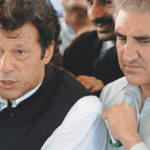ISLAMABAD: On Wednesday, Prime Minister Shehbaz Sharif established a committee to reduce government spending in light of the nation’s financial difficulties.
According to Information Minister Attaullah Tarar, “the PM formed the committee to ensure austerity measures on the government side,” Dawn was informed.
The committee consists of Drs. Qaisar Bengali, Farrukh Saleem, and Naveed Iftikhar, three economists, and federal secretaries of the finance, cabinet, and I&P divisions.
The committee will draft terms of reference and examine the finance division’s national austerity report. The committee’s primary goals are to recommend institutional changes and reduce the size of the government.
claims that Pakistan is prepared to proceed with the second phase of the CPEC projects, which would be centered on improving agriculture and technology.
In the meantime, Prime Minister Shehbaz made unexpected trips to several Utility Stores located around the federal capital to oversee the implementation of the Prime Minister’s Ramadan Relief Package. He declared that he would not stand for any deterioration in the standard of necessary goods offered at discounted prices at these stores.
The prime minister engaged in conversation with the program’s recipients during his visit and asked if they had any problems using the package.
He gave the relevant authorities instructions to make sure that eligible recipients of the aid package had no trouble using the facility.
During the event, Prime Minister Shehbaz announced that the Ramadan Relief Package of the federal government was providing a subsidy of Rs. 77 per kg for wheat flour and Rs. 100 per kg for ghee. Additionally, the deserving families would receive a subsidy of 20–30% on other food items including rice, pulses, sugar, etc.
According to him, the package would provide an extra Rs10,000 stipend to each beneficiary of the BISP, while thousands of households from Azad Jammu and Kashmir, Gilgit-Baltistan, and Balochistan would receive an additional Rs2,000 apiece under the Kafalat program.
In order to verify the availability and quality of the food items, the prime minister announced that he had assembled many teams to make unexpected trips to different USC outlets. He also threatened to take tough measures against anyone found to be engaged in the sale of subpar goods at the Utility Stores.
Interview with Xinhua
Separately, PM Shehbaz declared that Pakistan was prepared to proceed with the second phase of the China-Pakistan Economic Corridor (CPEC) in an interview with the Chinese Xinhua News Agency.
“CPEC has played a very important role, which we really appreciate deeply, and China has been extremely helpful in promoting Pakistan’s economic progress,” he stated.
In addition to looking forward to Chinese joint ventures in industries like steel and textile that combine Chinese technologies with Pakistan’s labor resources, Xinhua claims that Pakistan plans to construct industrial parks and export zones.
“High-quality products in agriculture, industry, IT, etc. are produced through those joint ventures to increase our production and exports and create hundreds of thousands of jobs and wealth,” PM Shehbaz continued.
According to the prime minister, Pakistan is trying to electrify its transportation network in order to reduce the cost of petroleum imports and divert funds toward growth. The nation also intends to purchase sustainable energy technologies from other nations, including China.
PM Shehbaz expressed his respect for the Chinese model and stated that the nation’s modernization has produced growth hubs and industries that are competitive in the international market.
“China’s growth has continued to go steadily compared to other countries, which is a remarkable achievement, despite challenges in recent years,” he continued.








